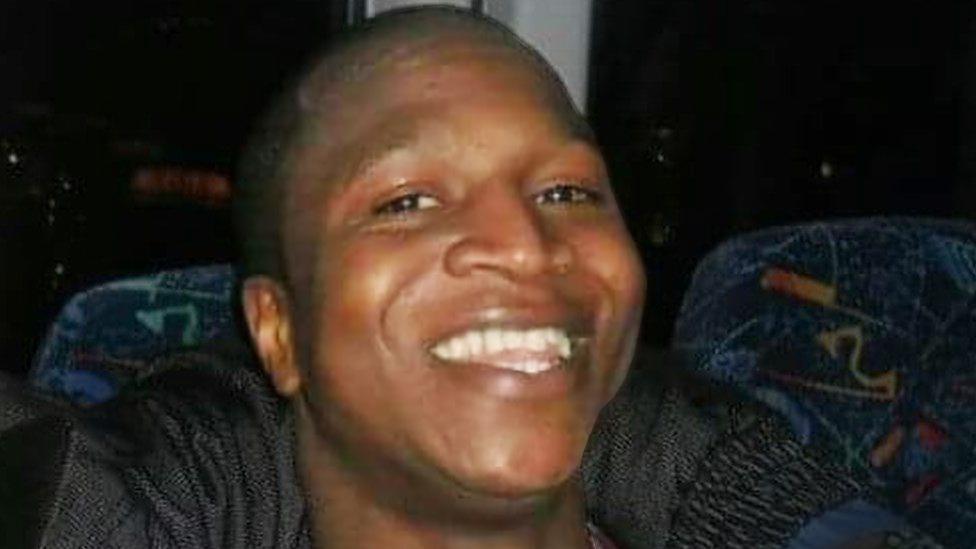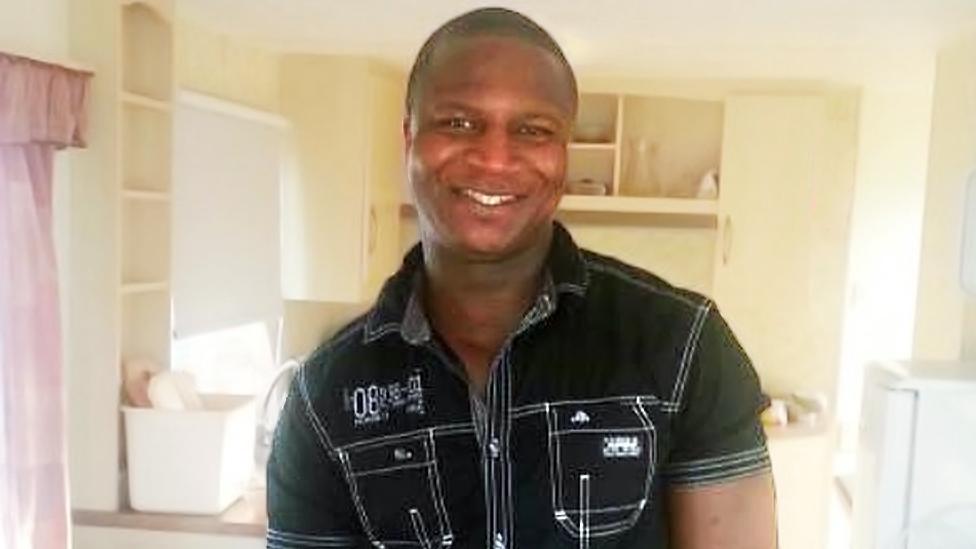Sheku Bayoh inquiry: Police chief says he took steps to avoid collusion
- Published

Sheku Bayoh died after being restrained by officers in Kirkcaldy
A retired deputy chief constable has told the Sheku Bayoh inquiry he took steps to make sure police officers involved in the incident did not "come up with a story".
Ruaraidh Nicolson said he wanted to make sure they were not "colluding or collaborating" over what had happened.
It came after he saw the officers together in a police station canteen.
Mr Nicolson said a senior officer was appointed to talk to the officers - and to look after their welfare.
Sheku Bayoh died after being restrained by the police in Kirkcaldy in May 2015.
The inquiry is investigating the circumstances of his death and whether race was a factor.
Mr Nicolson said: "The situation was we had a number of police officers in a canteen at Kirkcaldy and we needed to get a grip of that, make sure they weren't collaborating, colluding and also to look after their welfare.
"Because from a Police Scotland perspective it's important that we look after the welfare of our officers and staff."
Public perception
He said there may have been a representative of the Police Federation among the group but that he did not feel like there was anyone from Police Scotland "making sure that they weren't talking about the incident".
"You want the individual officer's objective understanding of what actually happened," Mr Nicolson said.
"You don't want them talking so that they come up with a story. Now, I would hope that they wouldn't do that anyway, but we need to make sure.
"And from a public perception perspective, we need to make sure that's the case."

Police officers have said they believed Sheku Bayoh was carrying a knife prior to the incident
Mr Nicolson also said it would have been "incumbent" on the officers to provide initial operational statements about the incident and their use of force.
The inquiry has previously heard that the Police Federation, which represents officers, had advised the officers not to give statements until it became clear whether they were being treated as witnesses or suspects.
They finally gave statements in June 2015, a month after Mr Bayoh died.
Mr Nicolson went on to tell the inquiry any initial concerns that an individual's actions were terror related were "absolutely not" related to skin colour.
"It had no reference to that (skin colour) whatsoever," he said.
"The information we had at that stage was that an attack was likely from a lone individual, who would potentially be carrying a knife."
Det Chief Sup Pat Campbell told the inquiry in March that the idea of a potential terrorism link was "quickly eliminated".
The inquiry, taking place before Lord Bracadale in Edinburgh, continues.